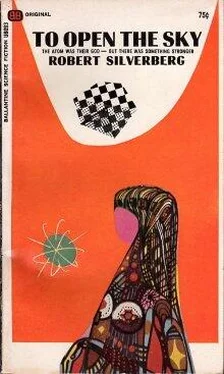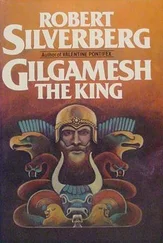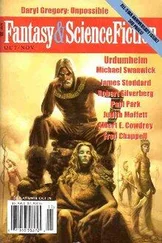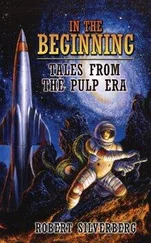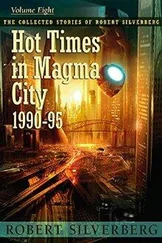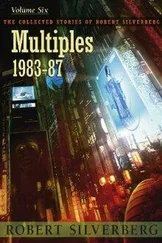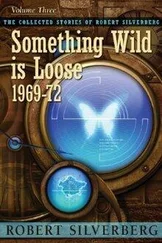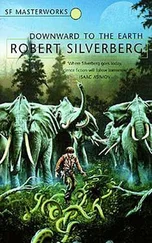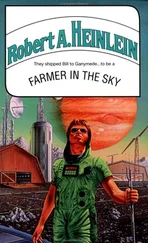Robert Silverberg - To Open the Sky
Здесь есть возможность читать онлайн «Robert Silverberg - To Open the Sky» весь текст электронной книги совершенно бесплатно (целиком полную версию без сокращений). В некоторых случаях можно слушать аудио, скачать через торрент в формате fb2 и присутствует краткое содержание. Год выпуска: 1967, Издательство: Ballantine Books, Жанр: Фантастика и фэнтези, на английском языке. Описание произведения, (предисловие) а так же отзывы посетителей доступны на портале библиотеки ЛибКат.
- Название:To Open the Sky
- Автор:
- Издательство:Ballantine Books
- Жанр:
- Год:1967
- ISBN:нет данных
- Рейтинг книги:5 / 5. Голосов: 1
-
Избранное:Добавить в избранное
- Отзывы:
-
Ваша оценка:
- 100
- 1
- 2
- 3
- 4
- 5
To Open the Sky: краткое содержание, описание и аннотация
Предлагаем к чтению аннотацию, описание, краткое содержание или предисловие (зависит от того, что написал сам автор книги «To Open the Sky»). Если вы не нашли необходимую информацию о книге — напишите в комментариях, мы постараемся отыскать её.
To Open the Sky — читать онлайн бесплатно полную книгу (весь текст) целиком
Ниже представлен текст книги, разбитый по страницам. Система сохранения места последней прочитанной страницы, позволяет с удобством читать онлайн бесплатно книгу «To Open the Sky», без необходимости каждый раз заново искать на чём Вы остановились. Поставьте закладку, и сможете в любой момент перейти на страницу, на которой закончили чтение.
Интервал:
Закладка:
One of the Venusians scooped up a twenty-pound boulder and lobbed it against the mission’s whitewashed wall. Martell nibbled a knuckle. Fragments of conversation came to him, ugly words: “Let us have him…We could take you all…Time we crushed all you toads…”
Mondschein’s hands were upraised now. Imploringly, Martell wondered, or was he simply trying to keep the Venusians at bay?
Martell thought of praying. But it seemed a hollow, futile gesture. One did not pray for direct reward, in the Brotherhood. One lived well and served the cause, and reward came. Martell felt tranquil. He slipped into his robe and went outside.
Never before had he been this close to a group of high-casters. There was a rank odor about them, an odor that reminded Martell of the scent of the Wheel. They stared in disbelief as the Vorster emerged.
“What do they want?” Martell asked.
Mondachein gaped at him. “Go back inside! I’m negotiating with them!”
One of the Venusians unfurled a sword. He drove it a foot into the spongy earth, leaned on it, and said, “There’s the priestling now! What are we waiting for?”
Mondschein said helplessly to Martell, “You shouldn’t have come out. There might have been a chance to quiet them down.”
“Not a chance. They’ll destroy your whole mission here if I don’t pacify them. I’ve got no right to bring that on you.”
“You’re our guest,” Mondschein reminded him.
Martell did not care to accept the charity of heretics. He had come to the Harmonists, as they had guessed, in the hope of spying; that had failed, as had the rest of his mission here, and he would not hide behind Mondschein’s green robe. He caught the older man’s arm and said, “Go inside. Fast!”
Mondschein shrugged and disappeared. Martell swung around to face thc Venusians.
“Why are you here?” he asked.
A gob of spittle caught him in the face. Without speaking di-rectly to him, one Venusian said, “We’ll skewer him and throw him in Ludlow Pond, eh?”
“Hack him! Spit him!”
“Stake him out for a Wheel!”
Martell said, “I came here in peace. I bring you the gift of life. Why won’t you listen? What are you afraid of?”
They were big children, he saw, reveling in their power to crush an ant. “Let’s all sit down by that tree, Allow me to talk to you for a while. I’ll take the drunkenness out of you. If you’ll only give me your hand—”
“Watch out!” a Venusian roared. “He stings!”
Martell reacted for the nearest of the giants. The man leaped back with a most ungallant display of edginess. An instant later, as though to atone for bolting that way, his sword was out, a glittering anachronism nearly as long as Martell himself. Two Venusians drew their daggers. They strutted forward, and Martell filled his altered lungs with alien air and waited for the shedding of his no-longer-red blood, and then suddenly he was no longer there.
“How did you get here?” Ambassador Nat Weiner asked.
“I wish I knew,” said Martell.
The sudden brightness of the Martian’s office stabbed at Martell’s eyes. He still could see the descending blades of the fearsome swords, and he was rocked by a sensation of unreality, as though he had left one dream to enter another in which he was dreaming yet a different thread.
“This is a maximum-security building,” said Weiner. “You have no right to be here.”
“I have no right even to be alive,” replied the missionary flatly.
six
Broodingly, Martell considered retreating to Earth to tell Santa Fe what he knew. He could go to the Vorst Center—where, less than a year ago, he had gone into a room as an Earthman, to be turned by whirling knives and lashing lasers into an alien thing. He could request an interview with Reynolds Kirby and let that grizzled, thin-lipped centenarian know that the Venusians had telekinesis, that they could deflect a Wheel or throw an attacker into Trouble Fungus or speed a living human figure safely across five miles and pass him through walls.
Santa Fe would have to know. The situation looked bad. Harmonists snugly established on Venus, and the place chock-full of teleports—it could mean a disastrous blow to Vorst’s master plan. Of course, the Vorsters on Earth had made great gains, too. They were masters of the planet. Their laboratories had run simulated life spans that showed a tally of from three to four hundred years, without organ replacement—simple regeneration from within, amounting to a kind of immortality. But immortality was only one Vorster goal. The other was transport to the unreachable stars.
And there the Harmonists had their big lead. They had teleports who already could work miracles. Given a few generations of genetic work, they might be sending expeditions to other solar systems. Once you could move a man five miles in safety, it was only a quantitative jump, not qualitative, to get him to Procyon. Martell had to tell them. Santa Fe called to him—that vast sprawl of buildings where technicians split genes and laboriously pasted them back together, where esper families submitted to an endless round of tests, where bionics men performed wonders beyond comprehension.
But he did not go. A personal report seemed unnecessary. A message cube would do just as well. Earth now was an alien world to Martell, and he was uneasy about returning to it, living in breathing-suits. He balked at making the return journey.
Through the good offices of Nat Weiner, Martell recorded a cube and had it shipped to Kirby at Santa Fe. He remained at the Martian Embassy while waiting for his reply. He had set forth the situation on Venus as he understood it, expressing his great fear that the Harmonists were too far ahead and would have the stars. In time Kirby’s reply arrived. He thanked Martell for his invaluable data. And he expressed a calming note: the Harmonists, he said, were men. If they were to reach the stars, it would be a human achievement. Not theirs, not ours, but everyone’s, for the way would be opened. Did Brother Martell follow that reasoning, Kirby asked?
Martell felt quicksand beneath him. What was Kirby saying? Means and ends were hopelessly jumbled. Was the purpose of the order fulfilled if heretics conquered the universe? In distress, he stood before the improvised altar in the room Weiner had given him, seeking answers to unaskable questions.
A few days later he returned to the Harmonists.
seven
Martell stood with Christopher Mondschein by the edge of a sparkling lake. Through the clouds came the dull glow of the masked sun, imparting a faint gleam to the water-that-wasnot-water. It was not that trickle of sunlight that made the water sparkle, though; it teemed with luminous coelenterates that lined its shallow bottom. Their tentacles, waving in the currents, emitted a gentle greenish radiance.
There were other creatures in the lake, too. Martell saw them gliding beneath the surface, ribbed and bony, with gnashing jaws and metallic fins. Now and then a snout split the water and a slim, ugly creature whipped twenty yards through the air before subsiding. From the depths came writhing, sucker-tipped tendrils that belonged to monsters Martell did not care to know.
Mondschein said, “I thought I’d never see you again.”
“When I went out to face the Venusians?”
“No. Afterward, when you holed up with the Martians. I thought you were making arrangements to go back to Earth. You know it’s hopeless to try to plant a Vorster chapel here.”
“I know,” Martell said. “But I’ve got that boy’s death on my conscience. I can’t leave. I lured him into visiting me, and he died for it. He’d be alive if I had turned him away. And I’d be dead if you hadn’t had one of your other little Venusians teleport me to safety.”
Читать дальшеИнтервал:
Закладка:
Похожие книги на «To Open the Sky»
Представляем Вашему вниманию похожие книги на «To Open the Sky» списком для выбора. Мы отобрали схожую по названию и смыслу литературу в надежде предоставить читателям больше вариантов отыскать новые, интересные, ещё непрочитанные произведения.
Обсуждение, отзывы о книге «To Open the Sky» и просто собственные мнения читателей. Оставьте ваши комментарии, напишите, что Вы думаете о произведении, его смысле или главных героях. Укажите что конкретно понравилось, а что нет, и почему Вы так считаете.
